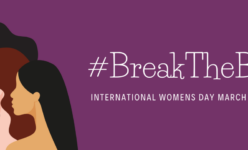Back then, I focused on the statistics and studies that highlighted the undeniable truth—when women are educated, society flourishes. Today, through Boss Women, we are actively shaping that reality, creating pathways for women to access not just education but the economic and leadership opportunities that come with it. The conversation has evolved, and so have the challenges. Women still face systemic barriers to education, whether in the form of financial constraints, cultural limitations, or gender biases. But one thing remains the same: education is the foundation of empowerment.
Despite significant progress, women across the globe continue to be at a disadvantage when it comes to education. According to the World Bank, 129 million girls worldwide remain out of school. The barriers range from economic hardship and cultural expectations to outdated policies that fail to recognize education as a basic right for women.
The impact of this lack of education is far-reaching. Women without access to learning and skill development are often locked into low-income jobs, informal labor, or forced dependence on others for financial security. Boss Women exists to break this cycle by ensuring women are not just educated but equipped to turn their knowledge into power—through entrepreneurship, leadership, and financial literacy.
Women who are educated are more likely to:
- Secure better-paying jobs or start their own businesses.
- Invest in their families, ensuring a better future for the next generation.
- Contribute to the economy at a macro level, driving national growth.
At Boss Women, we believe that education should not just be about obtaining degrees—it should be about building financial independence, strategic thinking, and leadership skills that allow women to create generational wealth.
The conversation has evolved, and so have the challenges. Women still face systemic barriers to education, whether in the form of financial constraints, cultural limitations, or gender biases. But one thing remains the same: education is the foundation of empowerment.
The Intergenerational Impact of Educated Women
An educated woman is an empowered mother. Studies have consistently shown that when women receive education, their children benefit in measurable ways. Children of educated mothers are:
- More likely to complete their own education.
- Less likely to experience early childhood malnutrition and health issues.
- More financially secure, as educated mothers contribute to family income.
A study by UNESCO found that each additional year of schooling for a girl increases her future earnings by up to 20%. This financial uplift doesn’t just change the trajectory of one individual—it shifts the economic standing of entire families.
The ability to break the cycle of poverty is one of the most powerful effects of women’s education. When women have control over their finances, they invest more in their families, ensuring that future generations have the tools they need to succeed.
How Communities Flourish When Women Are Educated
Beyond the individual and family benefits, educating women leads to broader community development. We have seen it firsthand—when women are educated and empowered, they:
- Start businesses that create jobs.
- Invest in local economies, boosting regional financial stability.
- Engage in policy-making and governance, advocating for women’s rights.
Communities that prioritize women’s education also see a decrease in child marriages, reduced domestic violence rates, and overall higher standards of living. The ripple effect is undeniable—one woman’s education uplifts an entire community.
At Boss Women, we champion not just learning but leadership. Through our programs, we provide mentorship, networking, and funding opportunities to ensure that education leads to tangible success.
Our work is about ensuring women don’t just learn but leverage their learning to lead, scale businesses, and take their rightful place in leadership spaces. We know that education alone is not the final step—economic independence and business growth are the next frontiers.
Overcoming Barriers: The Next Decade of Action
Despite the progress made, significant challenges remain:
- Financial Constraints: Many women still cannot afford education, particularly in developing countries where higher education is costly.
- Cultural and Societal Barriers: In some regions, women are discouraged from pursuing education, often expected to prioritize domestic roles over personal development.
- Limited Access to Leadership Training: Traditional education does not always translate into leadership opportunities, which is why initiatives like Boss Women focus on entrepreneurial education, business strategy, and financial independence.
The solution? A multi-faceted approach that includes scholarships, business funding, mentorship, and policies that prioritize gender equity in education.
Boss Women: The Next Chapter in Women’s Empowerment
The past ten years have reinforced my belief that education without opportunity is incomplete. That is why Boss Women does not just advocate for education—we build pathways for women to use their knowledge in powerful ways.
Our work is about ensuring women don’t just learn but leverage their learning to lead, scale businesses, and take their rightful place in leadership spaces. We know that education alone is not the final step—economic independence and business growth are the next frontiers.
Final Thought: Education + Action = Transformation
In 2015, I wrote about why educating women matters. In 2025, I am living that mission every day, ensuring that women have the tools, funding, and networks to not just participate in the economy but to dominate in it.
This is not just about access to schools and universities—it is about creating systems that allow women to succeed once they have the education they fought for.
The next decade is not just about getting women into classrooms—it’s about getting them into boardrooms, investment meetings, and leadership roles.
We are not just here to learn. We are here to lead.























